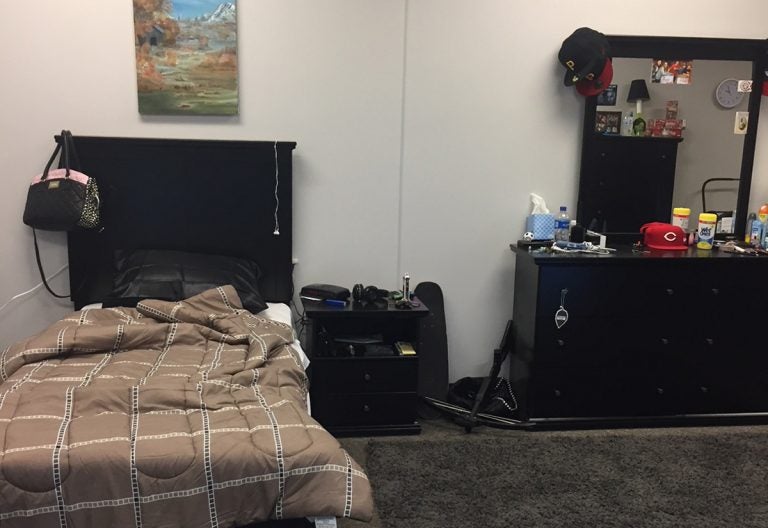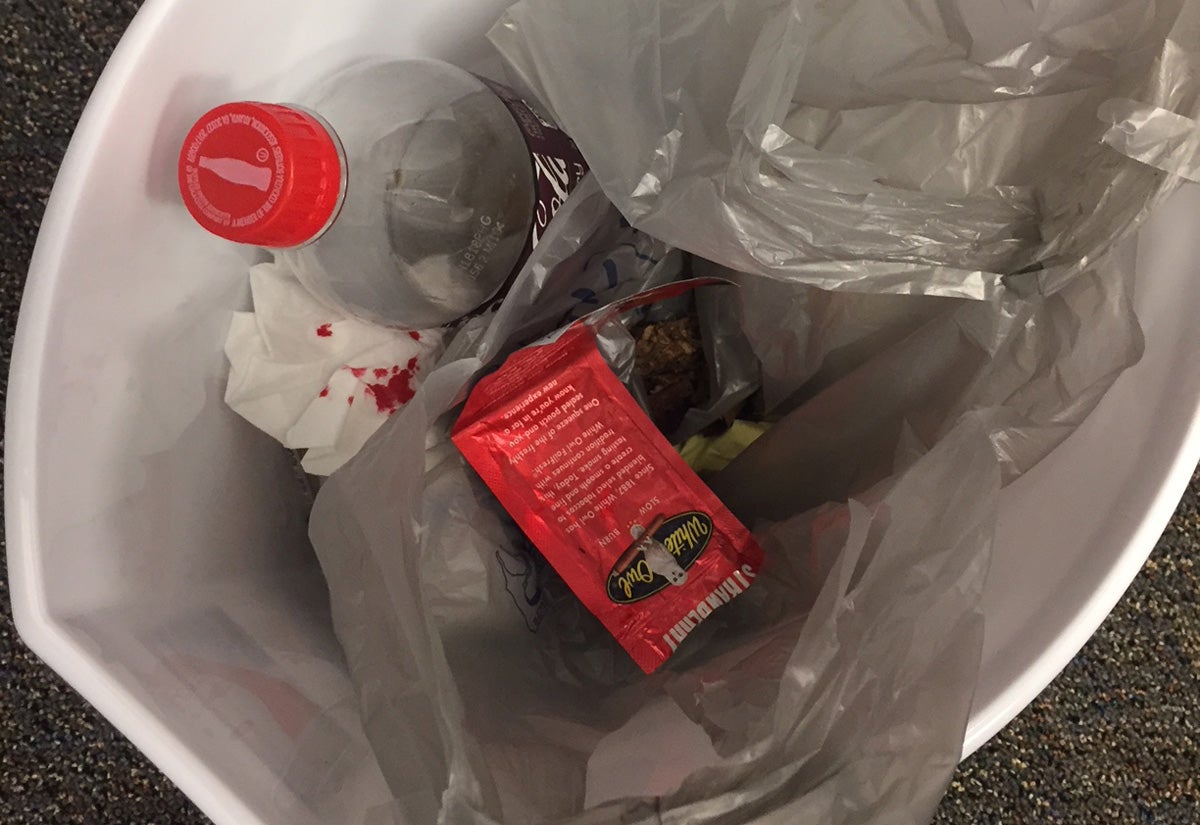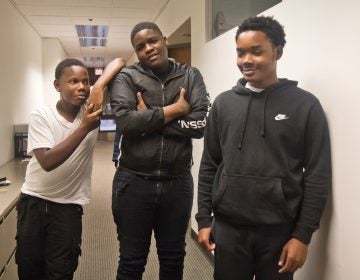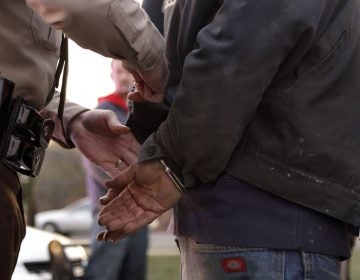Mock teenage bedroom helps parents recognize signs of risk
Over the next two months, the Bensalem police department will offer parents and community members guided tours so they can learn the signs of at-risk behaviors.

Over the next two months, the Bensalem Police Department will offer parents and community members guided tours of "Behind Closed Doors" so they can learn both subtle and obvious signs that could indicate drug use, mental health concerns, bullying and unhealthy relationships, and other at-risk behavior. (Provided)
There are warning signs that parents could easily miss: A blood-speckled tissue in the trash. A misshaped paper clip. A empty tied plastic bag. Cough medicine on a dresser.
Seamlessly blended into a teen’s bedroom, any or all of these items could be red flags, indicating drug use or a mental health problem.
“Parents want to know what to look for, and that’s our motivation for this,” said Bensalem Police Sgt. Adam Schwartz, standing in a mock teenage bedroom re-created in a township conference room to show at least 100 signs of at-risk behaviors.
Over the next two months, the police department will offer parents and community members guided tours of “Behind Closed Doors” so they can learn both subtle and obvious signs that could indicate drug use, mental health concerns, bullying and unhealthy relationships, and other at-risk behaviors.
The bloody tissue could be a sign of a teen injecting drugs or cutting. The paper clip also could be a self-harm tool, he said. And cough medicine can be abused and is often “a precursor’ to other illegal drug use, he said.

Then there are the empty soda cans, hair brushes and random tubes of used Chapstick — all of which could have “false bottoms,” and hide pills and other drugs.
“Drug trends are changing every day and so are the items to hide them; parents need to know just how creative these kids are getting,” Schwartz said.
Schwartz, while investigating drug crimes, has searched hundreds of rooms and heard parents repeatedly respond to a discovery with “I wish I knew,” he said. Most parents, he said, could walk past a knotted plastic bag “without a second thought.”
“I know right away it was torn off from a bag holding drugs,” he said.
Fred Harran, Bensalem’s director of public safety, said he wants parents to know what law enforcement and school social workers are finding in rooms, not just in Bensalem, but across the nation. He said many parents are in the best position to intervene to prevent a problem or identify one — if they know what to look for.
“Last year, we had a 173-percent increase in drug overdoses…that’s a Bensalem stat,” Harran said. “This room is one more tool to tackle that stat.”
To do that, parents need to be on the front lines — in their kids’ bedrooms.
“Parents need to be in their kids’ rooms to see what’s going on; they are not being a snoop by looking around,” he said. “They are being good parents.”
With combined knowledge pooled from Bensalem school social workers, Tammy Wood and Jacqui Owens, and police, the Bensalem Police Department was able to plant items that highlight more than just drug use, he said. Hotel cards and certain lingo in text messages and websites can point to risky and dangerous behavior, such as human trafficking.
“If we bring awareness to families about things that should concern them, then danger signs won’t be overlooked, and we are in a better position to get them resources to help them,” Harran said.
Wood said she expects the room, which eventually will go into a trailer that can travel to community events, to serve as a critical prevention tool for schools and the larger community.
“We want parents and adults in our community to see this and talk about it now — so we are not talking about it during the aftermath of a drug overdose or a suicide.”
WHYY is your source for fact-based, in-depth journalism and information. As a nonprofit organization, we rely on financial support from readers like you. Please give today.




